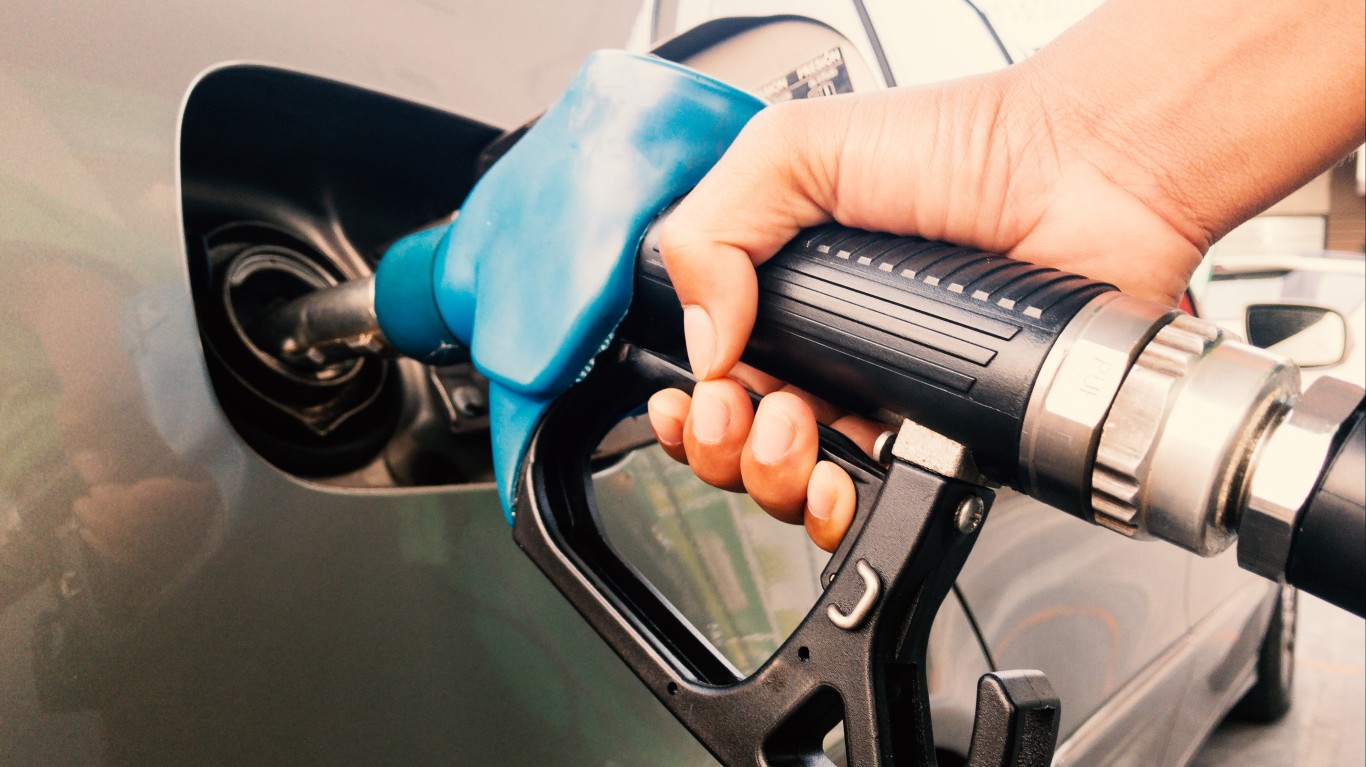
After rising for eight consecutive weeks, gasoline prices unexpectedly surged in the past week. Every state’s prices have been affected. Four states currently have prices above $3 for a gallon for regular. Over the past two weeks, U.S. gasoline prices are up 17.5 cents to $2.72 a gallon, according to GasBuddy.
The supply problem, caused by the shuttering of large refineries near Houston, is not the only reason. Patrick De Haan, head of petroleum analysis for GasBuddy, commented: “According to Pay with GasBuddy data, last week’s total gasoline demand soared to the highest level since the pandemic began as COVD-19 cases continue to drop and Americans are filling up more.”
Additionally, oil prices have risen an extraordinary 69% since the U.S. presidential election, taking gas prices with them. Crude oil prices, which were $36 a barrel at the end of November, have risen to $63, the highest price in a year.
The best predictor of gasoline prices is oil prices. They almost always outweigh refinery costs, transportation costs and state gas taxes.
The reasons oil prices have risen are unlikely to change soon. Chief among them is that global oil stockpiles have fallen. On February 10, Bloomberg reported on the shrinking crude inventory: “Oil rose again to extend the longest run of gains in two years with an industry report showing falling U.S. crude stockpiles the latest sign of tightening [global] supplies.”
Gas prices in some states vary from the national average for several reasons. The first is proximity to refineries. States near the huge refineries along the Gulf of Mexico tend to have the lowest prices in the country. Notably, the four states with the lowest per-gallon gas prices are Mississippi ($2.36), Texas ($2.40), Oklahoma ($2.46) and Louisiana ($2.38). The transportation costs from refineries to nearby areas shaves the average price of gas down, compared with much of the rest of the nation.
Another primary factor in prices is gasoline taxes. According to the American Petroleum Institute survey of state gas taxes as of January 1, the U.S. average is $0.5523 a gallon. States with low gas taxes include Missouri ($0.3582), Mississippi ($0.3719) and New Mexico ($0.3738). The states with the highest gas taxes are California ($0.8145) and Pennsylvania ($0.7710).
As mentioned, four states currently have average prices for a gallon of regular of over $3. California’s $3.68 price clearly is affected by its gas tax. In Hawaii, the price of $3.43 is affected by a relatively high gas tax at $0.6524 per gallon. However, the cost of transportation to islands that are 2,500 miles from the west coast is also a major contributor to Hawaii’s price. The price for a gallon of regular in Washington is $3.09. Its gas tax is a high $0.678 per gallon. In Nevada, the price is $3.01 a gallon.
Gas prices nationwide were last at $3 a gallon in 2014. There is still a long way to go before prices reach that level again. However, crude prices are sharply climbing, which means gas prices will continue to increase for now, as well. Moreover, gas prices can affect overall living costs in some places.
Click here to see which states have the highest gas taxes in America.
It’s Your Money, Your Future—Own It (sponsor)
Are you ahead, or behind on retirement? For families with more than $500,000 saved for retirement, finding a financial advisor who puts your interest first can be the difference, and today it’s easier than ever. SmartAsset’s free tool matches you with up to three fiduciary financial advisors who serve your area in minutes. Each advisor has been carefully vetted and must act in your best interests. Start your search now.
If you’ve saved and built a substantial nest egg for you and your family, don’t delay; get started right here and help your retirement dreams become a retirement reality.
Thank you for reading! Have some feedback for us?
Contact the 24/7 Wall St. editorial team.




